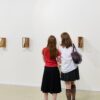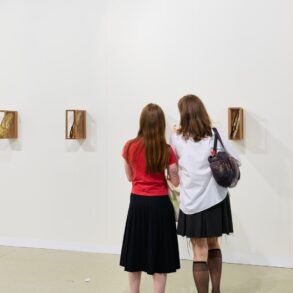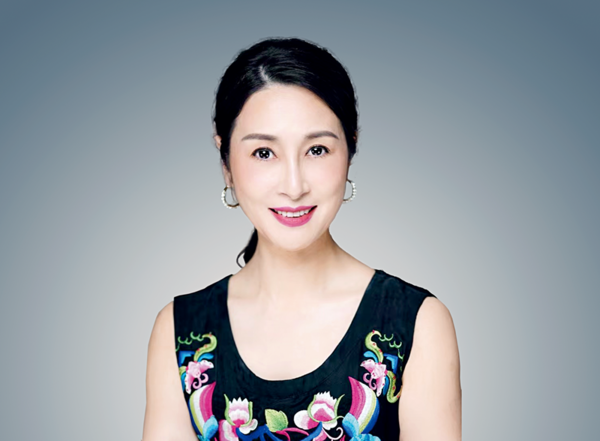
Peking Opera is not only a mode of cross-cultural communication, but also an emotional bond that connects overseas Chinese with their ancestral homeland. Peking Opera performer Zhang Yanyan has been living in Canada for nearly three decades. Her deep love for China is her inspiration and source of strength as she devotes herself to teaching and promoting Peking Opera abroad.
Showing Opera’s Charm
Zhang was one of the first graduates, with a bachelor’s degree, from the National Academy of Chinese Theatre Arts. She graduated in 1982; shortly after, she joined the National Peking Opera Company.
Also in 1982, Yang Jie, then-director of the TV series, Journey to the West (adapted from Chinese classic novel, Journey to the West, written by Wu Cheng’en during the 16th century), approached the opera company, to select an actress to play the role of a fairy in an episode. Yang was impressed by Zhang’s stage performance and facial expressions, and she selected Zhang.
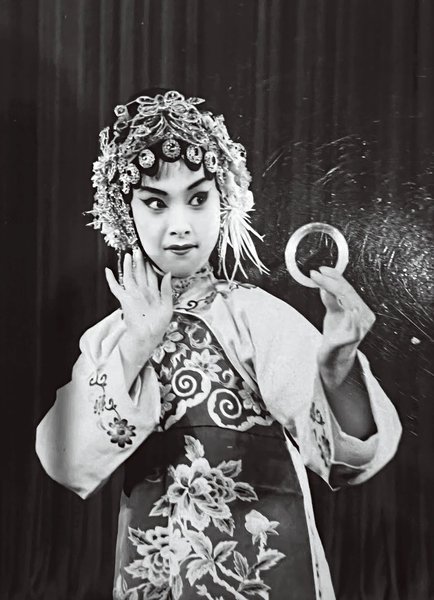
The TV series became an instant hit, and her role in the episode brought Zhang lots of attention, and near-instant popularity. As a result, she was offered many opportunities to audition for films and TV shows. She politely declined the offers. “I want to be a Peking Opera performer instead of a film or TV series actress,” she said at that time.
Later, Zhang performed with the National Peking Opera Company during tours of European, American and Southeast Asian countries. During the tours, she started to make full use of Western theatrical knowledge in further enriching her performance.
Zhang moved to Toronto, Canada, during the 1990s. Back then, performing on stage was the only way she could overcome homesickness. She had a difficult time adjusting to a new, and strange, city, and especially the language barrier.
In 1994, Zhang stepped into the spotlight when she performed the classic Peking Opera, Farewell My Concubine, in Toronto. That show commemorated the 100th anniversary of the birth of Mei Lanfang (1894-1961), the Peking Opera maestro.
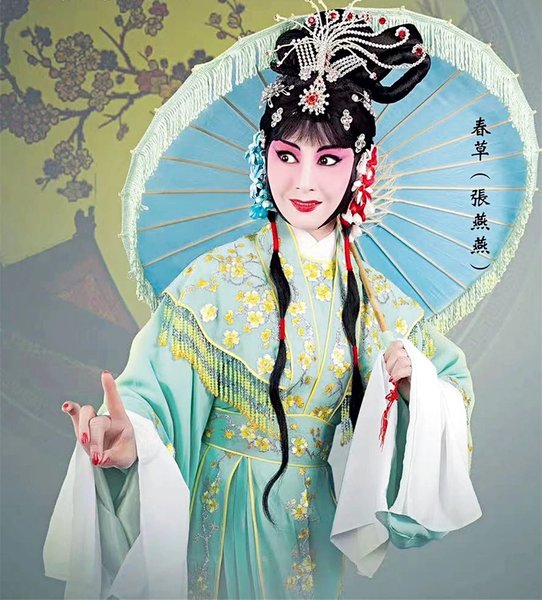
During the years that followed, Zhang joined Toronto Chinese Peking Opera Society, and she provided audiences with eye-catching performances in various operas, including Legend of the White Snake, Women Generals of the Yang Family, and Maidservant Chuncao in Court.
In 1997, one of CCTV (China Central Television)’s overseas-production teams, working on the Spring Festival gala, asked Zhang to perform Peking Opera with Dashan (Mark Henry Rowswell, a Canadian actor and comedian living in China). The performance earned Zhang praise from both domestic and international viewers.
Many people have told Zhang they fell in love with Peking Opera while watching her performances. Therefore, Zhang decided to teach Peking Opera in Canada, to help overseas Chinese and her international friends achieve a deeper understanding of Chinese arts.
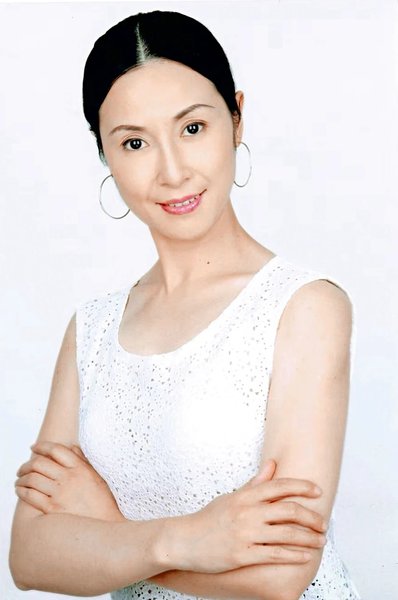
Attracting Students
Initially, Zhang’s students were mainly elderly overseas Chinese, primarily from Guangdong and its neighboring provinces in southern China. Her students’ interest in Peking Opera evolved from their love for Cantonese Opera. Her students generally spoke Cantonese, but very limited Mandarin Chinese.
As Zhang didn’t speak Cantonese, she had a difficult time communicating with her students. Therefore, Zhang began studying Cantonese. She also read books and watched videos to study the differences and similarities between the Cantonese and Peking operas, and she tried to integrate the elements of Peking Opera into Cantonese Opera.
Now, Zhang speaks Cantonese fluently, and she designs operas that combine features of the Peking and Cantonese operas.
In addition to the Peking and Cantonese operas, Zhang has been promoting other traditional Chinese art forms — including Huangmei Opera, Kunqu Opera and Tea- Picking Opera — in Canada.
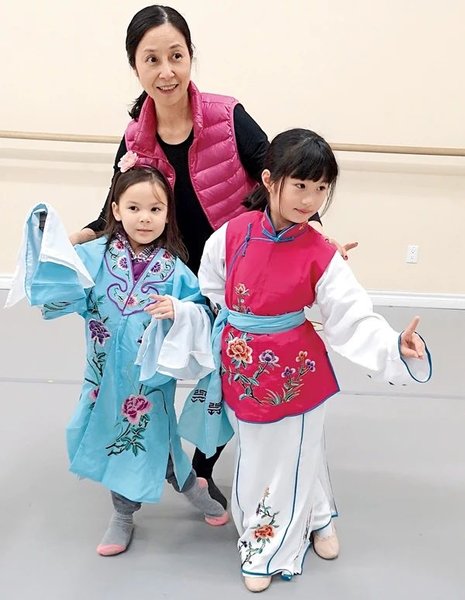
Zhang says the increasing popularity of Chinese operas globally is a source of happiness, and solace, for her.
Initially, Zhang’s Peking Opera class was directed toward adult opera enthusiasts. Later, Zhang began recruiting teenagers, after she learned one of her students wanted her children to attend the class.
In Zhang’s class for teenagers, most of the students were descendants of overseas Chinese, and they spoke limited Chinese. So, Zhang used pinyin to mark the tones of Chinese opera scripts, and she read the scripts to her students.
To Zhang’s delight, the teenagers were full of vim and vigor when they practiced the basic skills of Peking Opera, such as singing, making gestures, and the movements and facial expressions. After they acquired the basic skills, Zhang selected opera scripts and allocated roles.
Zhang has also performed Peking Opera and offered courses at University of Toronto to help youths understand and experience the charm of the traditional Chinese art form.
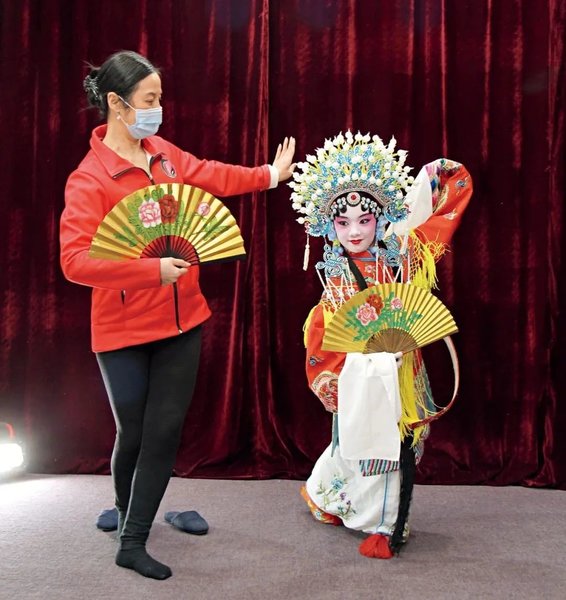
Cultivating Professionals
While teaching Peking Opera, Zhang has paid attention to enhancing the students’ all-round professional capabilities.
In 2015, the Canadian Chinese Opera Arts Center was established in Markham, in Ontario. Zhang is president of the center.
The center promotes Chinese opera in Canada, and it facilitates international cultural exchanges between opera artists in China and other countries.
The adult and teenage classes at the center are taught by renowned opera artists, and the students are guided to participate in cultural activities and performances.
Since 2010, China’s Ministry of Culture (predecessor of Ministry of Culture and Tourism) has organized large scale, cultural exchange activities abroad to celebrate Spring Festival. These events have been collaborations with other Chinese and international cultural institutions, and with Chinese institutions functioning abroad.
Zhang has played a leading role in organizing Spring Festival opera galas in Toronto. Many of her students have performed with prominent Peking Opera masters during those galas.
The video of the 2024 Spring Festival opera gala was arranged with Chinese and English subtitles. It was released on social-media and video-sharing platforms, including Bilibili and Xiaohongshu (RedNote).
During preparations for the 2024 Spring Festival opera gala, the center recruited more than 10 young amateur actors and actresses from various clubs — including hanfu (traditional clothing of the Han ethnic group in China), dancing, and martial arts — that promote traditional Chinese culture. After some training, those individuals performed supporting roles during the opera gala.
“These young people are very interested in learning Chinese opera, but they also have pressure, as they worry they are unable to perform opera well. With performance experience, their pressure may turn into momentum,” Zhang says.
Looking back, Zhang remembers her teenage students’ first stage performance. “I encouraged them, one by one, before they stepped on stage … I couldn’t help but shed tears when their performance won applause from the audience,” she recalls.
Today, many of Zhang’s students are well-qualified Peking Opera performers, and they have confidence in their abilities and performances. Many have also earned awards and trophies in recognition of their outstanding performances.
In 2023, the Canadian Chinese Opera Arts Center was included on China’s list of national-level children’s Peking Opera training bases.
“I enjoy watching my students performing on the stage. I hope they will show the charm of Peking Opera to more people, and help promote people-to-people exchanges between China and Canada,” Zhang says.
Photos from Interviewee
(Women of China English Monthly March 2025)
Editor: Wang Shasha
This post was originally published on this site be sure to check out more of their content

